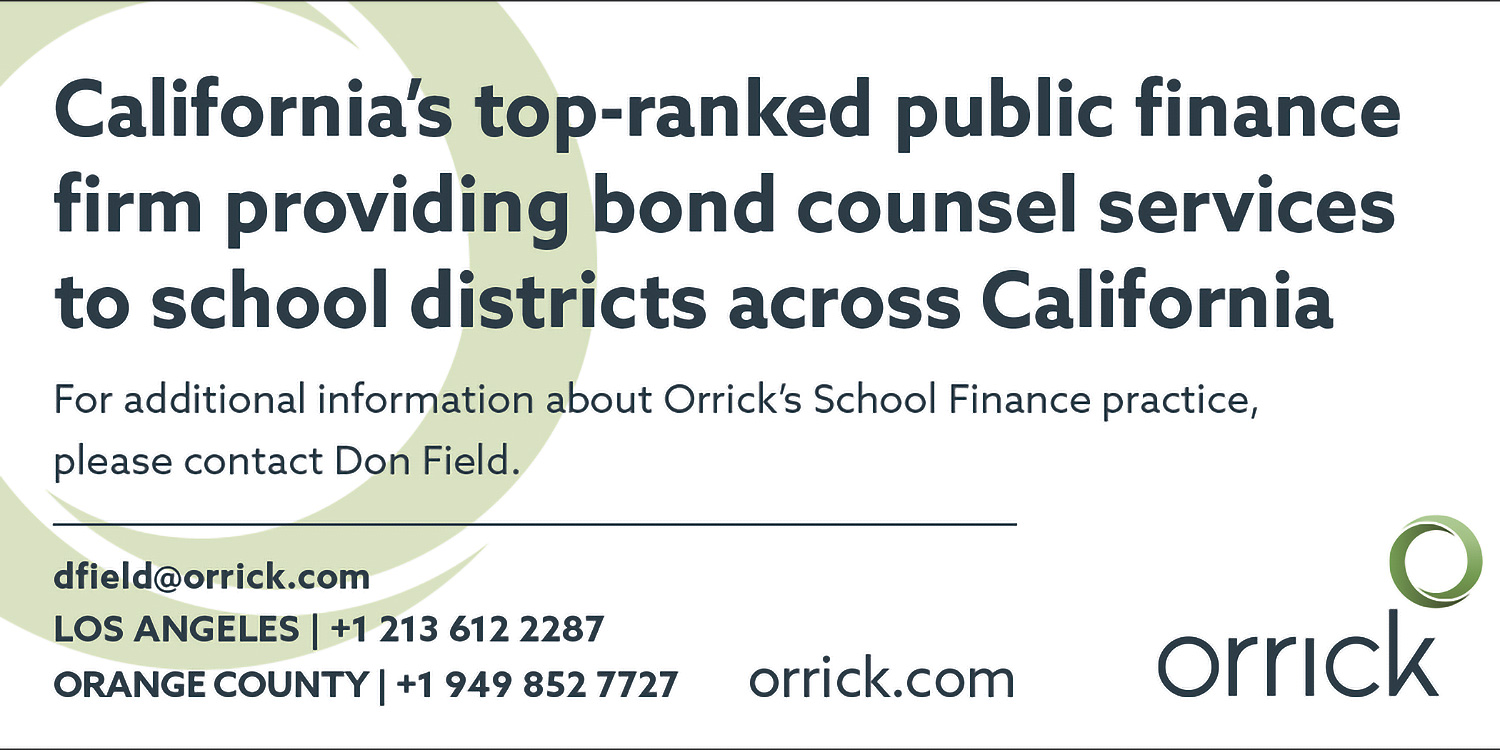
Those concerns were discussed by board members, superintendents and CSBA staff in a March 9 webinar separating fact from fiction in the details of the bill and highlighting the efforts that were underway to reopen campuses well before the Governor signed AB 86. Participants also considered the benefits of the legislation, new hurdles it creates and issues it fails to address.


The executive orders authorized governing boards to hold public meetings via teleconference during the pandemic without having to comply with restrictive Brown Act requirements such as having at least some members of the board physically present at a specific location.

Troy Flint | tflint@csba.org
Managing Editor:
Kimberly Sellery | ksellery@csba.org
Marketing Director:
Serina Pruitt | spruitt@csba.org
Staff Writers and Contributors:
Alisha Kirby | akirby@csba.org
Heather Kemp | hkemp@csba.org
Mike Ambrose | mambrose@csba.org
Graphic Design Manager:
Kerry Macklin | kmacklin@csba.org
Senior Graphic Designer:
Mauricio Miranda | mmiranda@csba.org
Suzanne Kitchens | Pleasant Valley SD
President-elect:
Susan Heredia | Natomas USD
Vice President:
Susan Markarian | Pacific Union ESD
Immediate Past President:
Xilonin Cruz-Gonzalez | Azusa USD
CEO & Executive Director:
Vernon M. Billy
California School News (ISSN 1091-1715) is published 11 times per year by the California School Boards Association, Inc., 3251 Beacon Blvd., West Sacramento, CA 95691. 916-371-4691. $4 of CSBA annual membership dues is for the subscription to California School News. The subscription rate for each CSBA nonmember is $35. Periodicals postage paid at West Sacramento, CA and at additional mailing office. POSTMASTER: Send address changes to California School News, 3251 Beacon Blvd., West Sacramento, CA 95691.
News and feature items submitted for publication are edited for style and space as necessary.

On March 16, the nation was forced to pay attention when the hateful rhetoric, harassment and assaults against Asian Americans culminated in the murder of eight people, including six women of Asian descent in Atlanta, Georgia.

The State Board of Education met virtually March 16–18 to discuss a number of big-ticket items that drew passionate debate from the public regarding the final adoption of the Ethnic Studies Model Curriculum, waivers from federal assessment requirements and more.
Board President Linda Darling-Hammond expressed hope that the state was beginning to turn a corner with the rapid administration of COVID-19 vaccines and momentum building across the state in reopening schools.
Governing bodies work most effectively when they establish a rational and purposeful framework to focus and guide their efforts. One of the most important things we do as a governance team is identify our “unity of purpose.” What is this, and how is it different than a mission and vision? A unity of purpose is a clear and unambiguous purpose, which can be a written statement or shared understanding, that becomes the inspiration for all efforts, and the lens through which those efforts are viewed. The unity of purpose is an all-embracing sense of what the organization is, what it stands for and how the governance team functions.
The unity of purpose is the umbrella under which the board’s mission and vision live. The vision determines where we are going, and the mission provides the plan for how we will arrive at our destination. A strong unity of purpose conveys the values that guide behavior, defines the character of relationships, and frames the style and culture of the organization. It represents the overarching goal that transcends individual agendas and special interests.
More than 370 board members and superintendents representing school districts and county offices of education across the state came together March 15–19 for CSBA’s Legislative Action Week to meet with their state senators and assemblymembers — all from the comfort of their own homes and offices.
“No one will advocate for us unless we are also willing to do the work of advocating for ourselves,” said Lori Cunningham, a Cupertino Union School District school board member. “They need to hear the firsthand stories and real-world implications of the decisions they are making in Sacramento.”

A pilot program on the testing strategy and how it prevents the spread of the disease is currently taking place in 11 school districts across the state. The tests will also be used at the three State Special Schools, where students often reside for the duration of the week.
- Communicates effectively on behalf of public education and, as the face of CSBA, advocates CSBA’s vision, mission and governance structure.
- Leads successfully in the face of extreme change and challenges.
- Demonstrates advocacy for and knowledge of the diverse educational, social and emotional needs of all students throughout the state through the lens of equity.

The event featured presenters from the United States Attorney’s Office for the Eastern District of California. Focused primarily on internet crimes against children, federal prosecutors Mira Chernick and Michael D. Anderson gave an overview of the situation and offered advice to educators on how to spot and report abuse remotely as well as tips on prevention.
“Traditionally, about a fifth of the reports of child sexual abuse are made by educators,” Anderson said. “It’s really valuable to make sure that even in the online environment, we’re still getting good reports and educators know how to make those reports effectively.”
Wildfires are not the only environmental hazard affecting students today, of course. Research shows that climate change has disparate impacts on low-income communities, communities of color and other vulnerable populations, who are less likely to have the resources and capacity to prepare for and recover from extreme climate events and issues such as poor air and water quality.

“This rate is 2.6 times higher than the statewide average and should serve as a clarion call to educators and policymakers alike,” according to “Suspending Our Future: How Inequitable Disciplinary Practices Disenfranchise Black Kids In California’s Public Schools.”

The report, Educational Assessments in the COVID-19 Era and Beyond, is based on an online roundtable convened by the National Academy of Education that featured scholars, policy leaders and educators discussing the “how” and “why” of testing in both the special circumstances of 2021 and beyond. Panelists concluded that while most people agree that critical data is needed to measure academic knowledge, there are a number of issues with assessments — including how tests are administered and how scores are used — that continue to afflict education systems and students.
Riverside CBOE President Bruce Dennis, and San Bernardino CBOE President Ken Larson, described in a joint statement the resolution’s purpose. “Our goal as non-partisan board members is to bring us together and give our communities the support they need in education and future career opportunities,” wrote Dennis and Larson. “In our conversations, we were searching for something that would allow us to be able to learn from history, and together support a resolution that had the essence of our vision.”
CCBE is a section of CSBA and partners with the association to provide educational leadership while serving the unique needs of all county boards of education in the state. The CCBE Board of Directors establishes the vision, mission and goals for the organization, and ensures that activities and programs remain focused on those goals, as well as the issues identified in CCBE’s Policy Platform.
Trinity County in Northern California is so rural that it doesn’t even have a stop light. But what it does have is an award-winning, comprehensive alternative school serving at-promise K-12 students who need a second chance to succeed.
Operated by the Trinity County Office of Education, the R.I.S.E. Academy is this year’s winner of the CCBE Apple for Excellence Award. The award recognizes outstanding programs administered by county offices of education reflecting the depth and breadth of a county education program necessary to address students’ changing needs. The award is given to the top county office of education program that is a winner of the CSBA Golden Bell Award.
MIG Course 2: Student Learning & Achievement/Policy & Judicial Review
MIG Course 1: Foundations of Effective Governance/Setting Direction
MIG Course 3: School Finance
MIG COE Course 1: Foundations of Effective Governance/Setting Direction
MIG Course 4: Human Resources/Collective Bargaining








